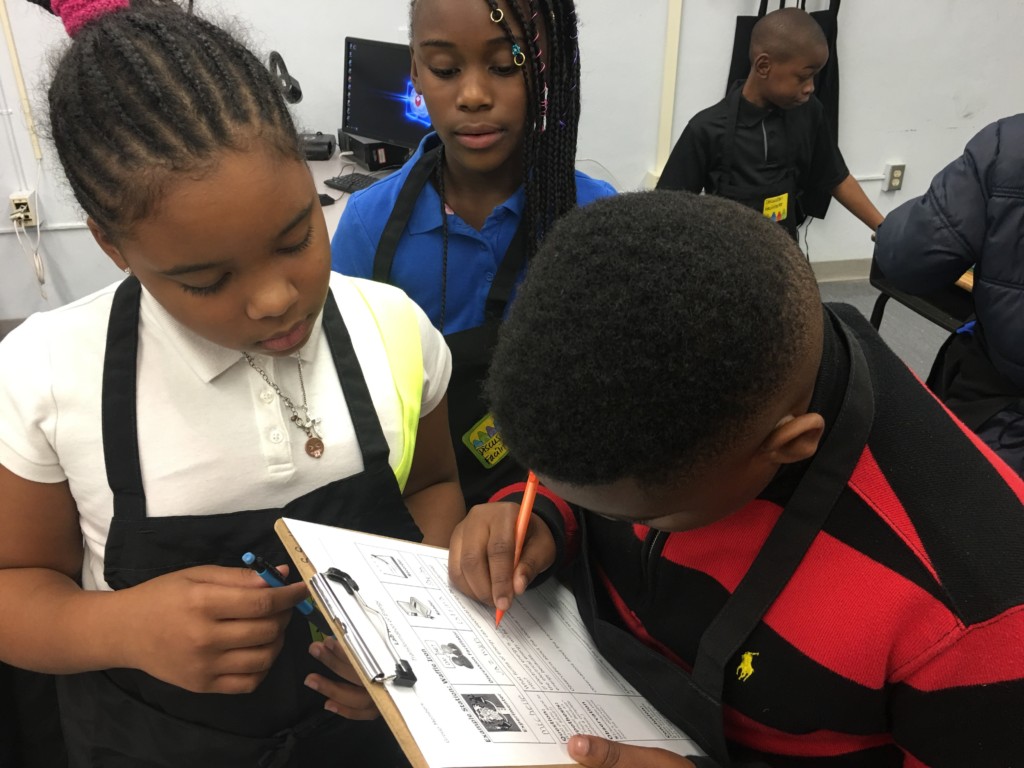
Students at West Riviera Elementary have seen their school grade go from a 'D' to 'B' under the Principal Autonomy Program
Editor’s note: Throughout August, redefinED is revisiting stories that shine a light on extraordinary educators. Today’s post, first published in August 2018, features two strong school leaders, one in Palm Beach and one in St. Petersburg, who saw critical needs at their schools and took the necessary steps to address them.
When Robin Brown took the helm as principal of West Riviera Elementary School in Palm Beach in 2017, the school was struggling.
It had been designated a “D” by the Florida Department of Education.
Realizing the situation, Brown made critical changes.
She assigned 28 teachers to the grade level she felt they were best suited to teach, strengthened the school’s leadership team, collaborated with education professionals who have done effective work in school turnaround programs, and reached out to business leaders who have saved failing companies.
As a result, the school rose two letter grades to a “B” this year.
Brown, who participated in a new legislative initiative known as Principal Autonomy, credits the program with helping to improve student achievement at her school, where 98 percent of students are on free or reduced-price lunch.
The program, which is now open to any district in the state, has given several principals the opportunity to build leadership skills and mark their own vision on how their schools can improve. Those principals say the program is helping to increase student achievement and giving them the opportunity to think outside the box.
Under the new law, principals are given more flexibility and greater authority over staffing, the curriculum and the budget.
Brown said the program “allows you to gain valuable insight from other educators from different parts of the country who have completed the same type of work and have been successful. It helps us to help our leadership team build their capacity, so we can function at a higher level to improve student achievement.”
Last year, LaKisha Falana, who also participated in “principal autonomy,” decided to deviate from Pinellas County district guidelines and select a different math program for her students at Maximo Elementary School – a school whose struggles have been documented by the Tampa Bay Times.
The change in math, coupled with other instructional changes, helped boost her students’ fifth-grade Florida Standards Math Assessment test scores. Indeed, 46 percent of students scored a level 3 or above this year on the assessment compared to 37 percent the year before.
Like Brown, Falana has just completed her first year in the program and said she appreciates the ability to make site-based decisions.
“If there is something I want to do that is outside the box, then I have the autonomy to try it,” Falana said. “It helps us as a leadership team to narrow our focus and our vision. We developed a strategic plan in order to get the results we are seeking to achieve.”
State Rep. Manny Diaz, R-Hialeah, wrote the legislation that created the Principal Autonomy Pilot Program in 2016. That first year, three school districts – Broward, Palm Beach and Pinellas – were allowed to pick low-performing schools that could enter autonomy-for-accountability agreements with the state.
In 2017, the program was extended to all school districts. Three schools in Broward – Bethune Elementary, Village Elementary and Park Lakes Elementary – have now participated in the program for two years and the schools all earned C’s this year compared to D’s and F’s in previous years.
Diaz, a former public-school administrator, said instilling leadership in a school is one of the most important things in improving student achievement. “You bring in a leader who is dynamic and fits the bill and they themselves incorporate their program, get things done, and it matches the needs of the school,” he said.
Diaz said improvements in student achievement take time and one essential ingredient is that the school culture must be changed at the onset. “When you bring in high-performing leaders who care, you are going to see a change in culture first before you see empirical results,” he said.
Falana said she put several practices in place to improve student achievement at Maximo Elementary School, which improved one letter grade to a C from the previous school year. Above all else, Falana said teachers must focus “like a laser” on standardized-based instruction and they must ensure students master the standards for their grade level.
She also altered the structure of the instructional team at the predominately black school, where all its students are on free or reduced-price lunch.
Although the school remains a C, Falana said she is hopeful the school’s grade will improve.
The Florida Department of Education reported no new school principals have registered for the autonomy program for 2018-19. However, signups for the program are open until December.